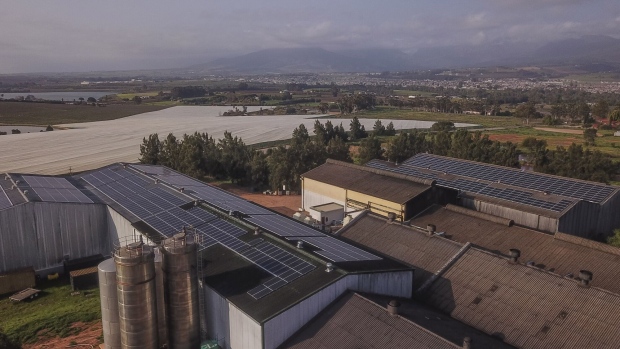Feb 12, 2024
Cape Town to Pay Homes for Excess Solar in South African First
, Bloomberg News

(Bloomberg) -- Cape Town, South Africa’s second-largest city, will pay residential households for excess power that they generate from their solar installations in a first for the country grappling with daily cuts.
“We will buy as much solar power as households and businesses can sell to us,” Mayor Geordin Hill-Lewis said in a statement Monday. Separately, the city will also allow businesses to sell energy to each other, which could add 350 megawatts of decentralized electricity to Cape Town’s grid, he said.
South Africans endure regular blackouts because years of neglect and mismanagement have left the state-owned utility, which operates as a monopoly, unable to keep up with demand. The nation is currently experiencing so-called stage 5 outages that entail as many as 10 hours without electricity a day.
Cape Town, the nation’s main tourist hub that’s been led by the opposition Democratic Alliance since 2006, has the most advanced plans to secure its own power.
Independent Generation
According to the strategy, the city will add as much as 1 gigawatt of independently produced electricity “over time,” with the first 650 megawatts of this within five years.
That will include private small-scale embedded generation, and an independent producer program.
Households can also agree to allow water-heating systems to be remotely switched off at peak times to avoid a full stage of cuts, known locally as load-shedding.
Speaking in his state-of-the-nation address on Feb. 9, President Cyril Ramaphosa said the end of load-shedding is “finally within reach” because of the government’s interventions.
Geordin-Lewis countered the president’s assertion, saying that South Africa’s almost two-decade energy crisis has worsened.
“The fact is that load-shedding has gotten considerably worse after every such promise,” he said. “It should be obvious to all by now that we cannot wait for the same people who created the crisis to fix it. We must do so ourselves.”
©2024 Bloomberg L.P.





